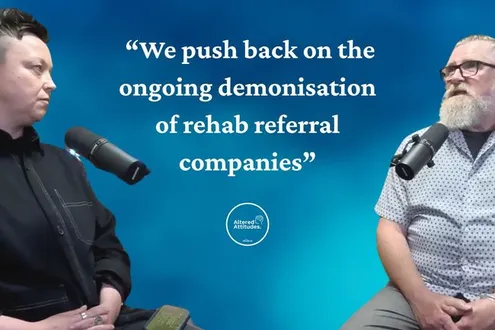Oxycodone (Oxy) is a painkiller prescribed for moderate to severe pain. The first warning sign that someone has developed an Oxycodone addiction is finding that they are unable to stop using it due to developing a psychological and physical dependency on it. They may find themselves unable to cope without it and may panic at the thought of being without access to it. If they find themselves without it, they may experience withdrawal symptoms that can be unpleasant and even dangerous.
As they build up a tolerance over time, they may find themselves using greater amounts to try and experience the effect it used to have on them again. This can have a serious impact on someone’s health and their ability to function in society, and therefore needs to be treated in a professional environment where oxycodone sufferers can undergo safe Oxycodone detox and recovery.
Why is Oxycodone Addictive?
In summary, oxycodone is addictive because it effectively hijacks the brain's natural reward systems, creating a powerful loop of reward and craving that can be hard to break. The brain’s reward system gets rewired, leading to cravings for the drug and these cravings can be incredibly strong and persist long after stopping the drug, contributing to relapse.
Concerned your Oxycodone use has got out of control and want to stop? Contact a Treatment Advisor for a free assessment.

Oxycodone is legally prescribed as a painkiller to help with moderate to severe pain, which can often lead to people accidentally developing a dependency after experiencing a serious injury, having surgery or sometimes even going through childbirth. It is also used recreationally by people who want to experience its long-lasting euphoric effects and some of these people go on to become addicted.
Like all addictions, a given amount of Oxycodone has less and less effect over time as the user builds up a tolerance. It also has many side effects, which can have a serious impact on someone’s health and their ability to function in society.
There is no single universal cause to all forms of addiction and two people who have much in common may ultimately have very different experiences. However, Oxycodone addiction is a widespread problem and many people find that they have at least some experiences in common with other users who have also fallen into the trap of addiction. These are some of the factors that might make someone vulnerable to developing an Oxycodone addiction.
Environmental Factors
Easy access to Oxycodone, such as through a legitimate prescription, may increase the chances of developing an addiction. Suffering from an injury or illness that causes pain may lead to addiction. Ongoing or past abuse, stress or trauma may also lead someone to Oxycodone addiction.
Psychological Factors
People who are susceptible to peer pressure may be more likely to develop an Oxycodone addiction, as might people who engage in risk-taking behaviour. Those with low self-esteem or a history of mental illness may also be more likely to develop an addiction.
Genetic Predisposition
A family history of drug abuse and/or addiction increases the chances of developing an Oxycodone addiction, and this can often connect to environmental factors. In addition, a family history of mental health disorders is known to heighten someone’s risk of developing addictions.
Changes in Brain Chemistry
Addiction is a disorder of the brain’s reward system and illness or injury can affect this area of the brain. Mental health issues linked to brain chemistry can also impact on someone’s chances of developing an Oxycodone addiction.
An Oxycodone addiction can alter the way someone appears, behaves and thinks. While some of these changes may be obvious, others may be possible to hide to some degree or build up gradually over time and so are less likely to be noticed.
It must be made clear that all of these signs are warning signs. If addiction is recognised early enough and treated, it may be possible to avoid experiencing some of the most serious issues it causes. If you or someone you know are using Oxycodone and you recognise any of the following, it is time to get help.
Physical Symptoms
- A slowed rate of breathing
- Dry mouth
- Itching
- Yawning
- Constipation
- Blurred vision
- Headaches
- Nausea/vomiting
- Seizures
Behavioural Symptoms
- Trouble sleeping
- Loss of ability to focus or concentrate
- Problems with memory
- Problems with balance or coordination
- Problems with judgement, such as reckless or impulsive behaviour
- Mood swings
- Paranoia
- Depression
- Anxiety
Although the two terms are often used interchangeably, there are crucial differences. ‘Abuse’ means that someone is using Oxycodone in a dangerous manner – possibly without even realising it – while ‘addiction’ is a physical and psychological dependence.
The first warning sign that someone has developed an Oxycodone addiction is finding that they are unable to stop using it. They may find themselves unable to cope without it and may panic at the thought of being without access to it. If they find themselves without it, they may experience withdrawal symptoms that can be unpleasant and even dangerous.









